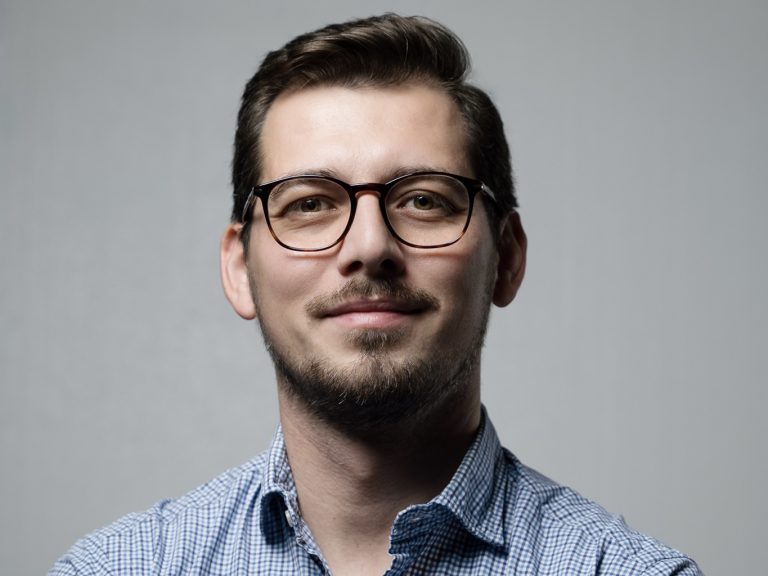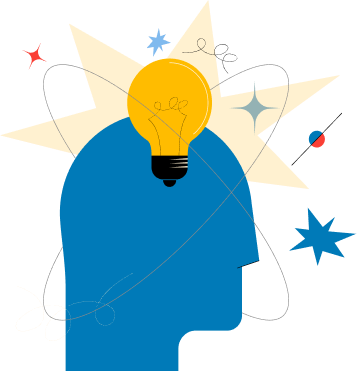As the tech industry continues to push the boundaries of innovation, many IT professionals find themselves trapped in the cycle of overwork, excessive screen time, poor sleep, and weekends spent bed-rotting. When things get this messy, it’s easy to get lost on small, low-impact tasks. And no number of Pomodoro sessions can revive a worker consumed by burnout and disconnected from their long-term goals.
Productivity that is healthy and sustainable involves more than just what you do during work hours; it encompasses one’s entire lifestyle and choices, and requires constant awareness of the big picture. In the words of Business and Productivity Coach Gábor Kőrös, sustainable productivity means being “conscious about our decisions and realistic about our expectations” and “focusing on the right things rather than just doing more.”
For Kőrös, sustainable productivity isn’t just a personal well-being strategy — it’s a win-win for employers and employees: “Sustainable productivity is a business advantage. Burned-out teams make more mistakes, innovate less, and ultimately underperform. If people burn out at work, they will likely leave the company, resulting in high fluctuation and higher overall hiring costs. The best tech leaders understand that long-term success comes from balancing ambition with well-being.”
A CFA charterholder with an MBA from Bayes Business School in London, Hungary-born Kőrös has led IT innovation initiatives and acquisition projects across London, Budapest, and Luxembourg. His career spans multiple industries — from fintech startups to a global streaming company. Now, he coaches professionals on cultivating sustainable productivity.
Beyond coaching, Kőrös embodies the holistic productivity principles he teaches, creating a conscious life for himself. A dedicated practitioner of zazen meditation and an avid street photographer, he knows the benefits of cultivating a hobby and passions outside of work. He believes that we don’t have to fulfill all our needs — such as financial security, making an impact, and self-expression — through our jobs alone. As he explains, “These days, there’s a strong societal message that we should find complete self-fulfillment through our jobs. While this sounds great in theory, the reality is that it doesn’t happen for everyone. In fact, I’d argue that it doesn’t happen for most people.” For Kőrös, street photography is the platform for his creativity: “It’s my way of engaging with the world in a different, more intuitive way. It allows me to observe, to be present, and to express myself without structure or expectations.”
In this interview, Kőrös discusses how tech leaders can foster sustainable productivity and avoid the danger of toxic productivity. He also explains the concepts of self-leadership and rational minimalism and how they connect to greater efficiency and overall well-being.
TechTalents Insights: In a fast-paced and demanding industry like IT, how can professionals balance well-being with the pressure of meeting goals and deadlines? What strategies help manage performance without compromising mental and physical health?
Gábor Kőrös: That’s a great question because the pressure to perform in IT is relentless. In my opinion, the key is to move from reactive time management to proactive self-leadership. Working under constant pressure is very demanding for our bodies. It is very common nowadays that we cannot complete all the tasks by the end of the day, so we just stop at some point. Many times, it takes away from us the feeling of getting something done because there are hundreds of tasks competing for our attention. Navigating this environment while also caring for yourself requires specific skills that you need to practice daily.

The most important thing is goal and task definition. It is common to see that, because of the tight deadlines and the fast pace, we just start working on the tasks without precisely defining what needs to be done. Making sure that everyone involved in the task or project has exactly the same understanding is key here. What I found is that stress very often originates from the lack of clarity. So, properly defining tasks benefits you by ensuring you work on the right things. A clear definition of a problem is already half the solution.
Regarding the deadlines and the competing tasks I mentioned, it is very important to take a step back sometimes and look at the big picture. Think about what is happening, what tasks you are working on, and what the overall goal is. Check if you are really working on the problem with the highest priority.
One of the most effective strategies is setting clear priorities — understanding what truly moves the needle versus what’s just noise. Many professionals get caught up in urgent but low-impact tasks, which leads to burnout without real progress. I like to use the Eisenhower Matrix as it gives a good overview of my priorities. Making a distinction between urgent, important, and low-impact tasks is also a key to being effective.
To maintain a good balance and avoid early burnout, the separation of working hours and private hours is very important. Try not to blend the two. Try to create space and time for yourself where you don’t think about work. That is beneficial not just for maintaining better balance, but many times, your mind comes up with solutions to problems when you give some space.
Finally, there’s the mindset. Many IT professionals feel a sense of urgency that’s more self-imposed than real. Challenging limiting beliefs about productivity — such as equating long hours with effectiveness — can be transformative. Sustainable high performance isn’t about pushing harder but about optimizing energy and focus over time.
“Sustainable high performance isn’t about pushing harder but about optimizing energy and focus over time.”
TechTalents Insights: How can we differentiate sustainable productivity from toxic productivity? From your perspective, what role do tech leaders play in helping their teams avoid toxic productivity?
Gábor Kőrös: Sustainable productivity is about maximizing impact while maintaining long-term well-being. It’s driven by clarity, efficiency, and intentionality — focusing on the right things rather than just doing more. Toxic productivity, on the other hand, is rooted in overwork, constant busyness, and the belief that output is the only measure of value. It leads to burnout, disengagement, and, ultimately, lower performance.
In modern society, it has become widely celebrated to give your 100% all the time. Do your best — which can be good, of course, and necessary. Feeling that you did all you could gives you a very healthy feeling of satisfaction: you tested your limits, and you should not feel any regrets. The problem starts when this approach becomes present in every part of your life. You want to always push your limits and give everything you have. You want to read five books a month, go to the gym every day, do extra work, and so on. Your life is just a never-ending task list, and you feel you don’t have time to do everything. Every machine or car breaks down sooner or later if we always run it at 100%. We all have our limits, and if we don’t respect them, we will break down.
Tech leaders play a critical role in shaping work culture. First, they need to model sustainable productivity themselves — if a leader sends emails at midnight or celebrates overwork, that sets the tone for the entire team. Second, they should foster an environment where efficiency is prioritized over sheer effort. This means focusing on outcomes rather than hours and encouraging smart work rather than just hard work.
“Tech leaders play a critical role in shaping work culture. First, they need to model sustainable productivity themselves.”
In toxic productivity, productivity basically becomes part of our identity. We want to always be productive in every area of our life. It is very common that we feel bad or worthless if we don’t do something that “creates value” or is “productive.” This also brings many negative feelings, such as guilt, anxiety, or the feeling that we are falling behind. We feel that we cannot allow ourselves to not proceed with full power. Ironically, the direction or the destination is often not very well defined. Sometimes, by burying ourselves in this micro-level productivity management of ourselves, we want to avoid facing the fact that we have not defined our bigger goals yet.
If you feel that your approach to productivity is not very healthy, I suggest you stop for a moment and reflect on these questions: How does this contribute to my bigger goal? What does it give to me? How do I feel about it? What would my day look like if I stopped doing it?
“Sometimes, by burying ourselves in this micro-level productivity management of ourselves, we want to avoid facing the fact that we have not defined our bigger goals yet.”
TechTalents Insights: Do you think tech leaders and businesses recognize that combating toxic productivity benefits everyone?
Gábor Kőrös: At the end of the day, sustainable productivity isn’t just about protecting individuals — it’s a business advantage. Burned-out teams make more mistakes, innovate less, and ultimately underperform. If people burn out at work, they will likely leave the company, resulting in high fluctuation and higher overall hiring costs. The best tech leaders understand that long-term success comes from balancing ambition with well-being. The challenge is that, in high-pressure environments, short-term results often take priority over long-term sustainability. Businesses that proactively combat toxic productivity — by fostering a culture of efficiency, setting realistic expectations, and supporting recovery — ultimately build stronger, more resilient teams.
“Sustainable productivity isn’t just about protecting individuals — it’s a business advantage. The best tech leaders understand that long-term success comes from balancing ambition with well-being.”
TechTalents Insights: You’ve worked as a project manager in different countries and industries. What inspired you to become a coach, and how have these experiences shaped your coaching philosophy?
Gábor Kőrös: Throughout my career as a project manager, I naturally gravitated toward a coaching-based leadership style. I always aimed to give my team members as much autonomy as possible, allowing them to take full ownership of their responsibilities. My role was to provide support and guidance rather than control, and I only shifted to a more directive approach when absolutely necessary.
Initially, I was drawn more toward mentoring, as my first instinct was to share my experiences and insights with others. However, over time, I integrated coaching methodologies into my approach, and I found that the combination of the two creates a powerful synergy. Coaching is fundamentally a partnership — based on the belief that clients are capable of finding their own solutions. The coach facilitates this process by using various techniques but does not give advice, offer opinions, or solve the client’s problems for them. I find this to be a deeply respectful and empowering approach.
In my work, I draw from multiple coaching disciplines, including ontological coaching, solution-focused coaching, and transactional analysis. These frameworks help me support clients in gaining clarity, overcoming challenges, and fostering sustainable growth in both their professional and personal lives.
TechTalents Insights: How do you define self-leadership, and why is it important?
Gábor Kőrös: Self-leadership is the ability to take ownership of one’s actions, decisions, and mindset in a way that aligns with personal and professional goals. It’s about being intentional — understanding your values, setting meaningful objectives, and managing yourself effectively rather than relying on external motivation or direction. It is a key to living an authentic life that I believe is the way to be happy.
In my coaching, self-leadership is a central focus because it’s the foundation for both personal growth and professional success. Whether someone is a leader, an entrepreneur, or simply looking to navigate life with more clarity, self-leadership enables them to make conscious choices instead of reacting to circumstances. It involves self-awareness, discipline, resilience, and the ability to challenge limiting beliefs.
Without self-leadership, people often feel stuck — driven by external pressures rather than their own vision. When they develop it, they gain more control over their time, energy, and mindset, which ultimately leads to better decision-making, improved well-being, and a greater sense of fulfillment. They will stop running an autopilot and become conscious about their choices and decisions.
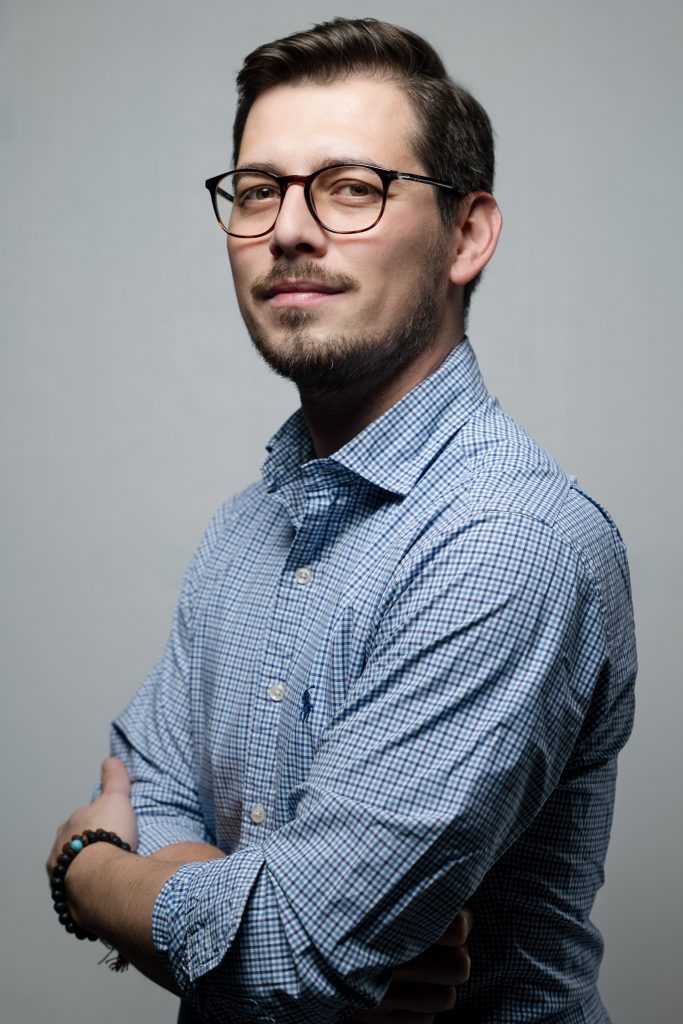
TechTalents Insights: Can you explain the concept of rational minimalism and how it applies to personal and professional life?
Gábor Kőrös: Rational minimalism is a concept that, at its core, is closely connected to self-leadership — even if it may not seem obvious at first. Just as self-leadership is about being intentional with our decisions, rational minimalism is about being conscious of what we choose to keep in our lives. It’s not about extreme minimalism, where you reduce everything to the bare essentials, but rather about making realistic, thoughtful choices about the things you own.
In everyday life, minimalism is often associated with decluttering physical spaces — keeping only what is essential and what truly brings joy. Rational minimalism takes this idea and applies a practical mindset: instead of blindly accumulating objects, it encourages intentional decision-making. It’s about avoiding the habit of buying things impulsively — just because they looked good in a store — when you already own several similar items.
The impact goes beyond just having a tidy space. A clean, well-organized environment creates mental clarity, reduces stress, and increases overall energy levels. When we’re not constantly surrounded by unnecessary distractions, we can focus more on what truly matters — whether in our personal lives or professional work. In this sense, rational minimalism is a tool for greater efficiency, mindfulness, and overall well-being.
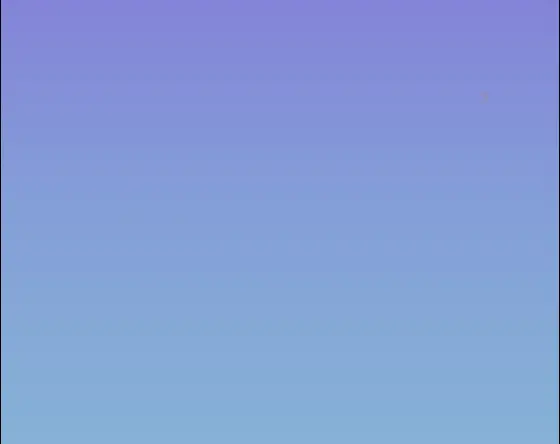
TechTalents Insights: How do you integrate self-leadership and rational minimalism into your daily routine? What benefits have you experienced?
Gábor Kőrös: As I mentioned earlier, both self-leadership and rational minimalism are about making conscious decisions, and that’s exactly what I try to focus on in my daily routine. I start by being intentional about how I plan my day — what tasks I work on and whether they are truly the most impactful ones or if I’m unconsciously avoiding something more important. I regularly check in with myself to ensure I’m not just busy but actually productive.
I also remind myself that taking breaks and having unstructured time is not just acceptable but necessary. I firmly believe that our minds work best when we alternate between deep focus and periods of detachment. Sometimes, the best solutions emerge when we step away from a problem and engage in something completely different. I try to use this principle intentionally.
When it comes to rational minimalism, I went through a major decluttering process a few years ago, letting go of many unnecessary objects and giving them away. Since then, I’ve been more mindful of what I bring into my space. Whenever I feel the urge to buy something, I ask myself whether I truly need it — whether it will bring lasting value or just temporary satisfaction. That doesn’t mean I aim for extreme minimalism; I still have decorative items at home because they bring me joy.
Even though my desk sometimes gets a bit messy, I have certain habits in place that help keep my environment organized. For example, I always place essential items like my keys and passport in the same spot, so I never have to waste time looking for them. These small routines free up a surprising amount of mental energy, allowing me to focus on things that truly matter.
TechTalents Insights: You practice meditation regularly. How does it benefit your professional life?
Gábor Kőrös: I have been practicing meditation for years and have explored various approaches along the way. Recently, I found that zazen resonates with me the most, so my daily practice now includes a 25-minute zazen session.
Meditation is an excellent tool for self-awareness and mental clarity. It allows me to observe my thoughts without immediately reacting to them, which helps me develop a more balanced perspective — both in my personal and professional life. One of the most valuable aspects of meditation is how it teaches you to recognize your ego-driven responses and view them from an external perspective rather than identifying with them completely.
This daily practice has significantly improved my ability to stay grounded and centered, even in high-pressure situations. It enhances my focus, emotional resilience, and decision-making, which are all crucial in my coaching and business-related work. By cultivating a habit of pausing and reflecting before reacting, I can better support my clients, facilitate deeper conversations, and maintain a calm, present mindset in challenging discussions.
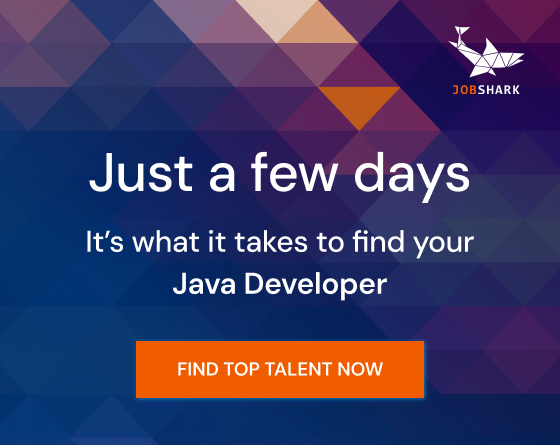
TechTalents Insights: You balance a career as a project manager and coach with your passion for street photography. How do these different aspects of your life influence each other? In your experience, how important is having a creative hobby for overall happiness, well-being, and even productivity?
Gábor Kőrös: That’s a great question — thank you for asking! It gives me the opportunity to talk about something I find really important: these days, there’s a strong societal message that we should find complete self-fulfillment through our jobs. While this sounds great in theory, the reality is that it doesn’t happen for everyone. In fact, I’d argue that it doesn’t happen for most people. And when they don’t feel entirely happy or satisfied in their work, they start chasing something that might not even exist.
We can break this issue down into three key factors: money, impact, and self-expression. When we start our careers, we often have this romanticized idea that we’ll find a job that pays well, makes a meaningful impact on the world, and also allows us to fully express ourselves. And if that happens, that’s fantastic! But in my experience, it’s not the norm. The key here — and I know I keep coming back to this — is to be conscious about our decisions and realistic about our expectations.
For example, I know that I enjoy organizing, working in a project-based structure, and collaborating with teams. But as a project manager, I sometimes feel too distanced from the actual outcome of my work. The results of my efforts aren’t always immediately visible, and that can feel a bit disconnected at times. This is where coaching comes in — it balances this need for impact. While project management operates on a macro level, coaching happens on a micro level, working directly with individuals. The impact is much more immediate and personal, which is something I deeply value.
Even though I feel aligned with both of these roles, I still need an outlet for creativity — something that exists outside the world of work. For me, that’s photography, and especially street photography. It’s my way of engaging with the world in a different, more intuitive way. It allows me to observe, to be present, and to express myself without structure or expectations.

TechTalents Insights: Have you noticed more professionals in the IT industry embracing mindfulness and self-leadership, or is it met with skepticism?
Gábor Kőrös: I think mindfulness has become very mainstream in recent years, which is a great thing. Anything that helps us slow down, take a break from constant stimuli, and become more conscious of our actions and decisions is beneficial. However, simply being aware of mindfulness won’t create change on its own — it requires deliberate effort and practice. It’s not just about sitting down to meditate; it’s about integrating self-observation into daily life, regularly checking in with ourselves, and noticing our thoughts and reactions in real time.
When it comes to self-leadership, I find that it’s still a less widespread concept. Developing strong self-leadership skills starts with deep self-awareness. It’s a journey that requires time, energy, and courage — the courage to truly explore ourselves and face the reality of who we are. But I firmly believe that this effort pays off immensely. Self-leadership helps us build a life that is aligned with our true values — a life that feels authentic and intentional. And when we look back years from now, it increases the chance that we’ll feel peace, contentment, and fulfillment rather than regret. Instead of feeling like life just “happened” to us, we’ll know that we took ownership of our choices, embraced responsibility, and lived with purpose. And that, to me, is incredibly empowering.
TechTalents Insights: Are there any books, practices, or tools you recommend for starting on the path of developing self-leadership?
Gábor Kőrös: For meditation, I have been using the Insight Timer app for many years. It offers guided meditations and courses, making it a great resource for both beginners and experienced practitioners.
In my daily routine, I rely on a combination of tools to stay organized. I use a calendar app for structuring my day, and Superlist for task management. I previously used Todoist for years and found it very effective, but Superlist provides more flexibility, which suits my current workflow better. Additionally, I keep a bullet journal in Notion, where I write a short daily entry — even if it’s just a few sentences.
When it comes to books, there are far too many to list, but here are a few that have had a significant impact on me. One is “The Life-Changing Magic of Tidying Up” by Marie Kondo. This book was the inspiration behind my own decluttering journey. It’s widely known, but for good reason — it shifts your perspective on what you truly need. Another one is “Deep Work” by Cal Newport. It’s a fantastic resource for rethinking time management and focus in an age of constant distractions. Finally, there’s “Essentialism” by Greg McKeown, a powerful guide to making conscious decisions, prioritization, and focusing on what truly matters.
I’m deeply passionate about this topic, and I am currently developing an online self-leadership course, which I plan to launch in one or two months alongside my new website. It will be available in English and Hungarian, offering practical insights, concise knowledge, and a workbook with many exercises for those looking to take charge of their lives with greater awareness and intention.
Note: Gábor can be contacted through his LinkedIn; his website is available in English.
You clearly appreciate thoughtful, in-depth insights
Why not get more? Join the TechTalents Insights community and receive bi-weekly trends, ideas, and expert viewpoints — free and delivered to your inbox. Click here to subscribe.


